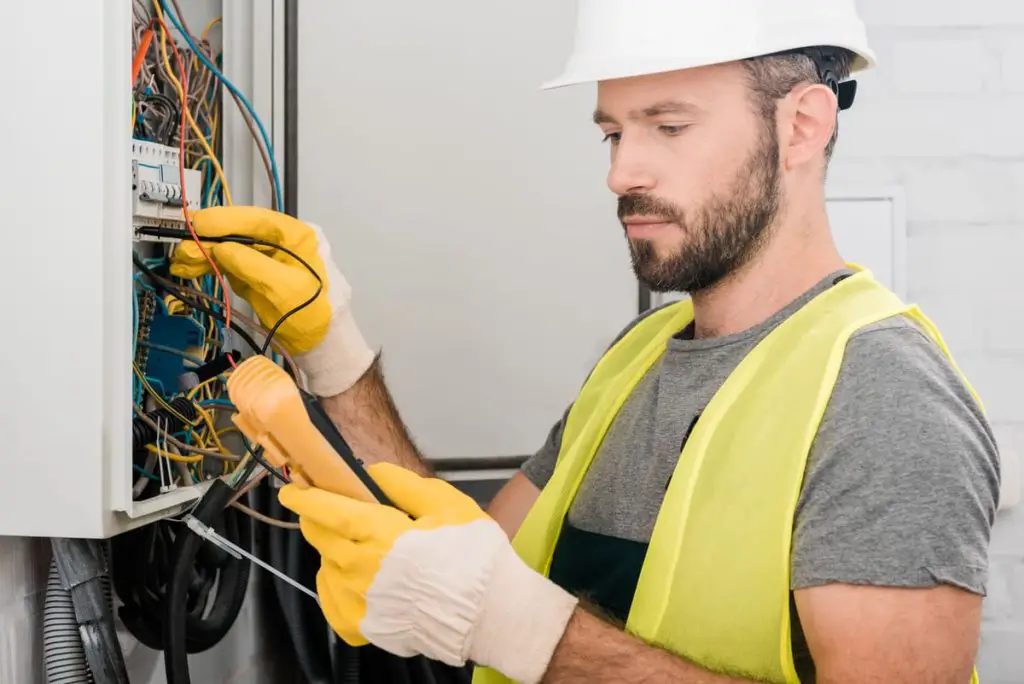Installing a swimming pool is often a dream for many people. However, while affording a swimming pool might seem like the biggest thing to plan for, that’s not the case. To enjoy your pool safely, you need to take safety precautions, including reducing the risk of electrocution.
All swimming pools need to be grounded to be able to swim in them safely. It can be hazardous to swim in an ungrounded pool as it will increase your chances of electrocution. Grounding a pool reduces the conduction caused by water.
This article will discuss how grounding and bonding pools keep you safe. Additionally, I’ll discuss why above and inground pools should be grounded. Lastly, I’ll reveal the only type of swimming pool you can keep ungrounded.

What Does Grounding a Swimming Pool Do?
You might have heard the term “grounding” before when talking about electricity. In many cases, you might hear that wearing rubber shoes will keep you grounded in a storm. Also, we commonly hear that a home’s electricity needs grounding to keep the circuits from shorting. No matter the context you use the word grounding, it means the same thing if it involves electricity.
Grounding a swimming pool connects your pool to the ground. Should an electric current run through your pool, it will divert it to the ground.
Essentially, you’re giving any electricity a clear path to the ground, so the surrounding area is less affected by it.
If a small electric current were to be in the pool (for example, if you had an in-water pool cleaning pump), you could still swim in it without worry because all electrical currents are being diverted away from the water and into the earth.
What Does “Bonding” a Pool Mean?
In addition to grounding, you also need to make sure your swimming pool is bonded. However, you might not know what that means.
Bonding a pool is the process of making sure the amount of electricity present in the water is evenly spread, so one area isn’t more charged than the other reducing the overall risk of electrocution.
Though grounding a pool will help keep swimmers safe, it’s possible that there could be a build-up of electricity during the process in which the current is running to the ground. Bonding will help disperse this electricity so the water is safe and swimmers don’t have to worry about entering an area with a greater electrical charge.
Since grounding and bonding are essential to keep your pool safe from electrical currents, you must remember to do both.
Why Should You Ground an Inground Pool?
You should ground an inground pool because if a pet or person, particularly a child, were to fall into one that hasn’t been grounded, they could suffer an electric shock which could be lethal.
Grounding an inground pool is required in many places to ensure safety. Even in cases where it’s not a requirement, most pool installation companies will refuse to do a job if asked not to ground a pool.
That’s because inground pools are dangerous when not properly bonded and grounded.
Even if your inground pool is essentially like a pond, and you don’t use any electric pumps or cleaning, it can still attract an electric current.
While it’s true you can cover or drain an inground pool, you can’t remove them, which means they represent a near-constant hazard. Grounding an inground pool reduces this risk and shows you have taken steps to ensure your pool is safe.
Do You Need To Ground Above-Ground Pools?
You might have assumed an inground pool is grounded because it literally sits in the ground. Additionally, you might think that an above-ground pool doesn’t fit the same requirements because you can easily empty it.
In some cases, you can easily dismantle an above-ground pool because there’s less construction involved in putting one in your yard. However, you might not realize that above-ground pools must also be electrically grounded.
You need to ground above-ground pools, even though they aren’t in the earth, but rather rest above it since they can still create a hazard for swimmers if they’re not grounded. No matter what body of water you’re swimming in, water itself attracts and conducts electricity.
An above-ground pool is as likely to conduct an electrical current as an inground one. While it might not have been at the forefront of your mind to properly bond and ground your elevated pool, you’re taking huge risks by not doing so.
This is especially true, considering elevated pools attract outside electrical currents more easily than inground pools.
During a thunderstorm, an elevated pool may attract more lightning than an inground pool.

What’s the One Kind of Pool You Don’t Need To Ground?
This topic might start to worry you about anything you have outside that holds water. Keep in mind that if swimming will occur, the water should be grounded!
However, you can forgo grounding and bonding in one type of swimming pool.
The one kind of pool you don’t need to ground is a “kiddie pool”. Since these pools are designed for short term use and lack any electrical components, they are the only pools you can safely go in without grounding them first.
These pools tend to be very small and shallow, making them easy to fill, empty, and put away. They are, in essence, like large bathtubs.
It’s essential that you don’t allow your child into a kiddie pool during a thunderstorm. You should also avoid swimming if there are exposed wires and electrical currents around. However, you don’t have to go through the grounding and bonding process for these pools.
Conclusion
All swimming pools should be grounded to keep yourself and anyone else safe from electrical shocks. Additionally, you need to make sure you bond them so there is no electrical build-up in the water.
However, if the only pool you have is built for small children, you can forgo grounding without sacrificing safety.
Sources
- Royal Swimming Pools: Understanding bonding and grounding for swimming pools
- House Caravan: What happens if a pool is not grounded
- Hayward Pools: The role of electrical bonding and grounding in pool safety
- Family Handyman: What to know about kiddie pools
- Shop Clearwater Pools: Why does an above ground pool need to be grounded?
